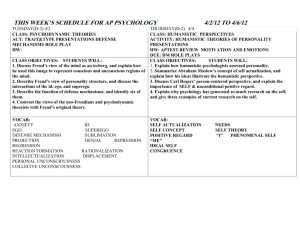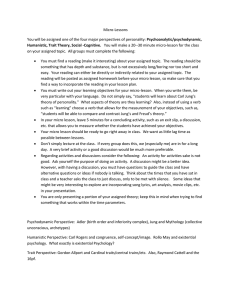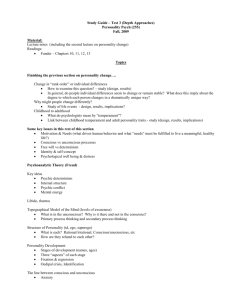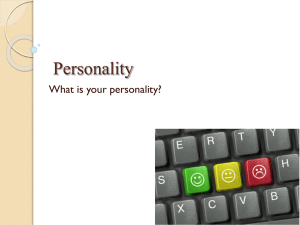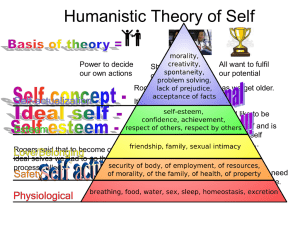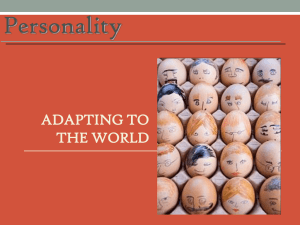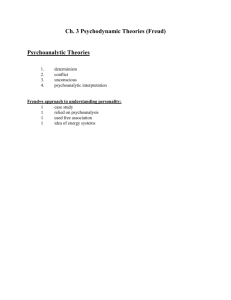Personality Theories: Critical Thinking Questions
advertisement
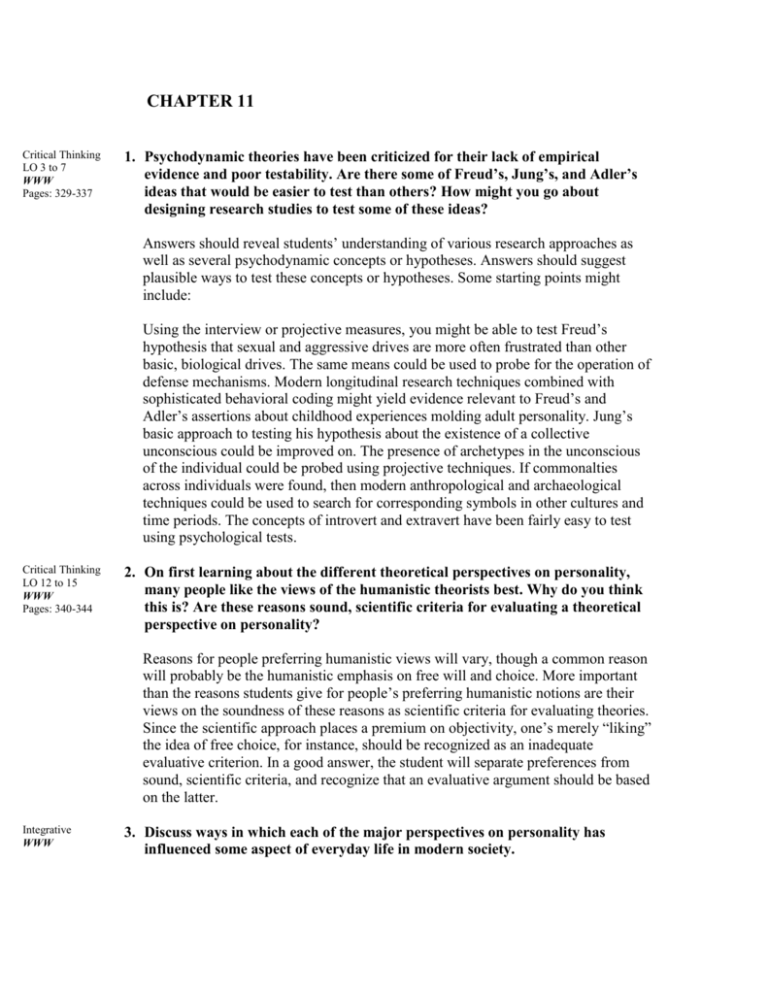
CHAPTER 11 Critical Thinking LO 3 to 7 WWW Pages: 329-337 1. Psychodynamic theories have been criticized for their lack of empirical evidence and poor testability. Are there some of Freud’s, Jung’s, and Adler’s ideas that would be easier to test than others? How might you go about designing research studies to test some of these ideas? Answers should reveal students’ understanding of various research approaches as well as several psychodynamic concepts or hypotheses. Answers should suggest plausible ways to test these concepts or hypotheses. Some starting points might include: Using the interview or projective measures, you might be able to test Freud’s hypothesis that sexual and aggressive drives are more often frustrated than other basic, biological drives. The same means could be used to probe for the operation of defense mechanisms. Modern longitudinal research techniques combined with sophisticated behavioral coding might yield evidence relevant to Freud’s and Adler’s assertions about childhood experiences molding adult personality. Jung’s basic approach to testing his hypothesis about the existence of a collective unconscious could be improved on. The presence of archetypes in the unconscious of the individual could be probed using projective techniques. If commonalties across individuals were found, then modern anthropological and archaeological techniques could be used to search for corresponding symbols in other cultures and time periods. The concepts of introvert and extravert have been fairly easy to test using psychological tests. Critical Thinking LO 12 to 15 WWW Pages: 340-344 2. On first learning about the different theoretical perspectives on personality, many people like the views of the humanistic theorists best. Why do you think this is? Are these reasons sound, scientific criteria for evaluating a theoretical perspective on personality? Reasons for people preferring humanistic views will vary, though a common reason will probably be the humanistic emphasis on free will and choice. More important than the reasons students give for people’s preferring humanistic notions are their views on the soundness of these reasons as scientific criteria for evaluating theories. Since the scientific approach places a premium on objectivity, one’s merely “liking” the idea of free choice, for instance, should be recognized as an inadequate evaluative criterion. In a good answer, the student will separate preferences from sound, scientific criteria, and recognize that an evaluative argument should be based on the latter. Integrative WWW 3. Discuss ways in which each of the major perspectives on personality has influenced some aspect of everyday life in modern society. Answers should demonstrate sound understanding of the broad principles underlying each theoretical approach, and hypotheses about how these principles have influenced everyday life should be well reasoned. Some possibilities include: Psychodynamic: A tremendous number of notions that comprise “common knowledge” in our society derive from this perspective, especially Freud’s work. These include the beliefs that childhood experiences influence later personality and psychological health, that dreams are meaningful, and that the contents of the unconscious can influence behavior. Behavioral: Behavior-modification techniques are widely used to change habits in oneself and others. Our criminal justice system seems to be based on a belief in the effectiveness of punishment in controlling behavior. Advertising counts on the effectiveness of modeling to help sell products. Humanistic: The notion of the self is prominent in our society. Most people agree that high levels of self-esteem are important, especially in children, and people sometimes go to great lengths to engender high self-esteem in themselves and others. We greatly value the notion of free choice. Self-actualization is a highly regarded and much sought-after achievement. Biological: The idea that personality traits are strongly influenced by heredity has become more popular, especially in the wake of the twin research reported in the chapter. It has become more acceptable to hold this intuitively appealing view.
